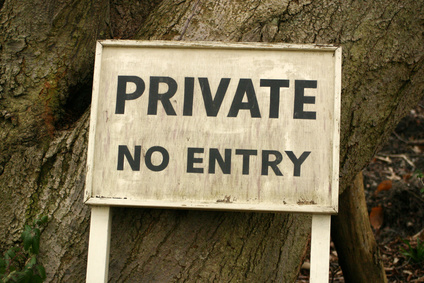Landlord Rights Explained: Inspecting and Viewing Properties
Published on May 17, 2017 by Sarah Mac

A common area of dispute between tenants and landlords is down to confusion over when a landlord is within his or her rights to enter their property to view or inspect it. It is for sure a tricky area, but once you are clear on the rights of each party, you will be in a position to avoid tension.
It is vital for landlords to be aware that, despite the fact the home in question is their property, there is actually no right in law that allows them to make a visit any time they feel fit. So if you have it in mind to make an impromptu inspection visit without prior arrangement, you should definitely read on if you wish to protect yourself from complaints.
Under the Housing Act 1988, at least 24 hours’ written notice must be given by a landlord before making a visit to a tenanted property, unless there is an emergency situation. If there isn’t then tenants reserve the right to refuse entry.
Landlord’s Rights of Entry
Unless a court order is granted stating otherwise, landlords have three official rights of entry under the Housing Act 1988. These are as follows:
Right of Reasonable Access
All landlords have a right of access to enter a property they own where there is a need to undertake repairs. The access must be reasonable, which usually means the repairs are urgent and failure to deal with them would result in health and safety risks and / or financial loss. In these cases the right of entry will usually be immediate.
Right to Enter to Inspect the State of Repair of the Property/Empty a Fuel Slot Meter
Landlords also reserve the right to enter a property in order to inspect its state of repair, or to empty a fuel slot meter. This right of entry is not however immediate and requires a minimum of 24 hours’ written notice.
Right to Enter to Provide Room Cleaning Services
Where a landlord and tenant have an agreement whereby the landlord agrees to provide cleaning services, or where the property is shared by multiple occupants, then the landlord has a right to entry without prior permission.
Timing Your Visits
Landlords tend to believe that once they’ve given their tenants the required 24 hours’ notice, they can attend the property at any time they wish. However, the norm is for a tenancy agreement to provide that visits must be made at ‘reasonable’ times of the day. Tenants should have the option to be present and to make arrangements to have someone with them should they feel it necessary. Such provision is intended to benefit both parties.
Marketing the Property to Future Tenants
There will of course come a time towards the end of a tenancy when you want to start showing new tenants round the property. Providing your existing tenant has given notice to end the tenancy then as a landlord you reserve the right to show the property to prospective new tenants, providing such visits take place only within the last 28 days of the tenancy agreement. The same applies where you have served a Notice to Terminate.
Again, 24 hours’ written notice must be given. If you are in dispute with your tenant concerning their departure, or anything else, then your right to entry in this respect will not be affected, apart from in cases where allegations of landlord harassment have been made.
Exceptions to the 24-Hour Rule
Only in emergency situations are landlords able to override the 24-hour notice rule. Such situations may be for example where there is structural damage that is posing a risk to health and safety; a smell of gas, a fire or a flood or where it is suspected some criminal or life-threatening activity is taking place.
Informal Agreements
Where landlords and tenants have a good relationship, it may be tempting to make arrangements for visits via a quick chat. This is fine, however you should remember that without a written audit trail, should anything go wrong or a dispute arise in the future, as much as you may believe it won’t, you could find yourself in a difficult position legally.
Failure to Comply
If a landlord fails to abide by the rules set down in the Housing Act 1988 then there is a very real prospect of being prosecuted for harassment under the Housing Act 1988 which could lead to fines, banning orders and sometimes even criminal proceedings. This is precisely why it is so important for landlords to be fully aware of how rights of entry work. It should always be remembered that tenants have a right to live in a rented property ‘without unreasonable interruption from the landlord’.
In Summary
In summary, landlords should be aware that unless there is an emergency situation, they must seek permission from the tenant should they wish to enter the property, and must provide written notice of at least 24 hours. Visits should be kept to a reasonable quantity and landlords should always consider the property is their tenants’ home, which means knocking at the door rather than simply entering with their own key. It is good practice to foster good relations with tenants, and keeping things pleasant concerning entry to the property will certainly help this.

